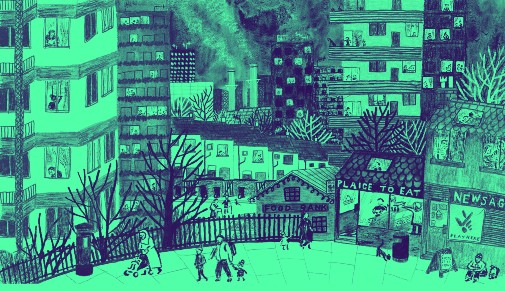Collaborative Research Calls Help For Low-income Families As Energy Prices Escalate
Families with dependent children are being hit hard by rising energy prices and need targeted government support, according to new research published which found the needs of families with dependent children are being overlooked by policy responses that favour temporary, flat-rate payments.
Hardship
The policy briefing from Changing Realities, a University of York-led research programme in partnership with Child Poverty Action Group (funded by abdrn Financial Fairness Trust) documenting the everyday experiences of families on low-incomes. It highlights evidence of the hardship families are facing, and the strategies they are forced to adopt in their effort to keep their children warm.
Recommendations in the briefing include:
Moving away from temporary, one-off payments towards regular payments to provide financial relief.
The government should increase and expand the support provided for disabled people and those with health conditions by increasing the value of Personal Independence Payments and reducing the time it takes to process a new claim.
Introduce a system for a social tariff for energy to be easily accessible to provide discounted energy costs to families on a low-incomes.
Investment in the social security system in the longer-term so that a rise in living cost does not tip millions of families into crisis.
Additional needs
Working in partnership with over 100 parents and carers living on a low-income from across the UK, Changing Realities are calling for the UK Government to recognise and respond to the additional needs that families with dependent children face, outlining that existing support packages are not sufficient.
Lili, a Changing Realities participant, said: “Energy costs are higher for families with children, especially babies and younger children. More laundry, showers and baths, heating, cooking.”
“I am wearing clothes for longer than I would like, to help limit the amount of laundry. We are not able to have our heating on as it is too expensive, we wear dressing gowns or extra clothing indoors. I batch cook and put several things in the oven whenever I turn it on. These measures mean that our house is cold, we no longer invite friends over.”
“Scrimping like this does have a negative effect on us all. I wake up in the night worrying about money, my standard of self-care and well-being has declined but I am trying to ensure that our daughters’ does not. We are surviving but not really living, let alone thriving.”
Support
Dr Jim Kaufman, Research Associate at the University of York’s School for Business and Society, said: “As the coldest months approach, it is vitally important to get more support to families on a low-income who are facing a daily struggle to keep their children warm.”
“Families with dependent children inevitably face higher energy costs and the government response must recognise this if households are to be able to meet their basic needs.”
“Our new research sets a clear agenda and makes an urgent case for more targeted, ongoing support. One simple and effective way to get much-needed support to families would be to increase the rate of Child Benefit to help people on the lowest incomes, as well as those on middle incomes who will also be struggling.”
Mubin Haq, Chief Executive, abdrn Financial Fairness Trust, said: “Families with children, especially those with more than two children and households where someone has a disability, are being particularly hard-hit by the cost-of-living crisis. Policymakers need to tailor support to ensure it reaches those most in need, a one-size-fits-all approach is falling short when it comes to tackling this crisis.”

